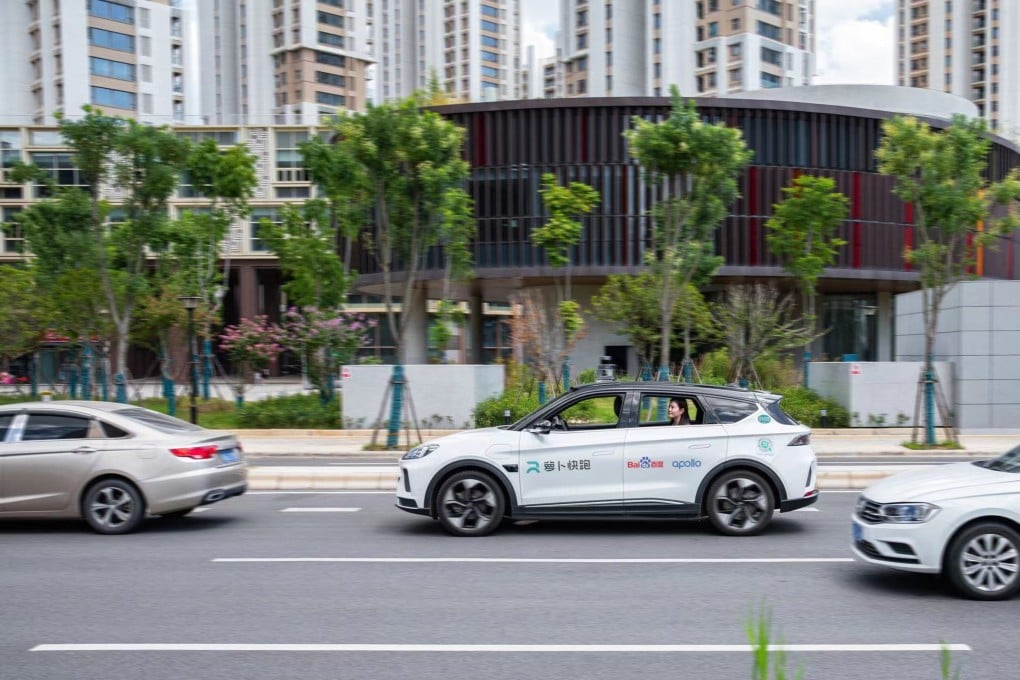Advertisement
Baidu launches China’s first driverless taxi services in Chongqing and Wuhan in landmark moment for autonomous motoring
- The search and AI giant was granted licences to put the completely unmanned cabs into service on Monday
- The groundbreaking decision gives it the upper hand in a fierce competition among EV start-ups to commercialise autonomous driving technology
Reading Time:2 minutes
Why you can trust SCMP

Fully driverless taxis will take to the roads of Chongqing and Wuhan on Monday in a landmark moment for the future of mobility in mainland China.
Baidu, China’s biggest search engine and artificial intelligence firm, has been given the green light to launch the unmanned taxi services, giving it the upper hand in a fierce competition among smart electric vehicle (EV) start-ups to commercialise autonomous driving technology.
The company said the licences granted to its Apollo Go autonomous ride-hailing service to offer robotaxi rides without human drivers present, marked “a key turning point” for the future of mobility in China.
Advertisement
It becomes the first mainland company to operate completely driverless cabs on open roads.
“We believe these permits are a key milestone on the path to the inflection point when the industry can finally roll out fully autonomous driving services at scale,” said Wei Dong, chief safety operation officer of Baidu’s intelligent driving group.
Advertisement
Unlike its robotaxis launched in Beijing in April, the 10 autonomous cabs to be let loose on the roads next week will not have a human “security officer” behind the wheel in case of emergency. The move to grant the licences reflects Chinese regulators’ confidence in the technology.
“Chinese authorities are normally very conservative and they are [often] not willing to give the green light to technological innovations and innovative products,” said Cao Hua, a partner at private equity firm Unity Asset Management. “The driverless taxis must have proved to be very safe before they could secure the regulatory permits.”
Advertisement
Select Voice
Select Speed
1.00x